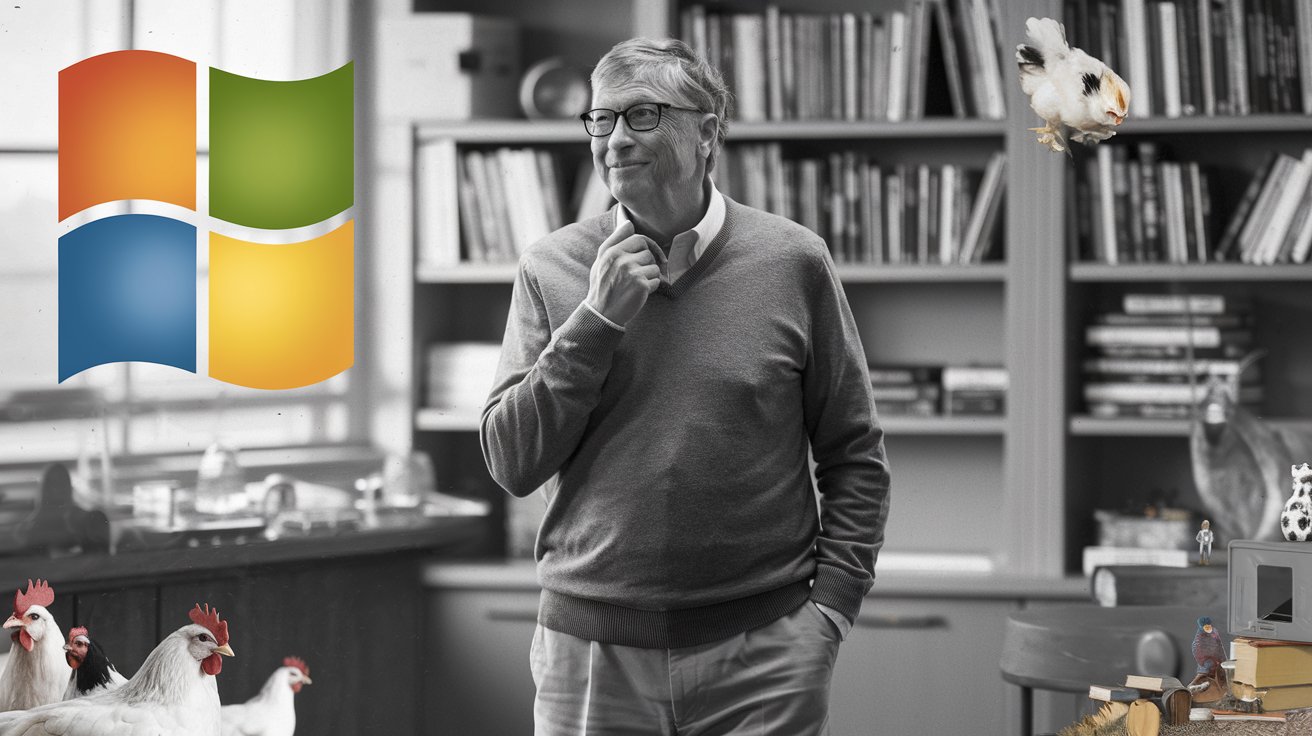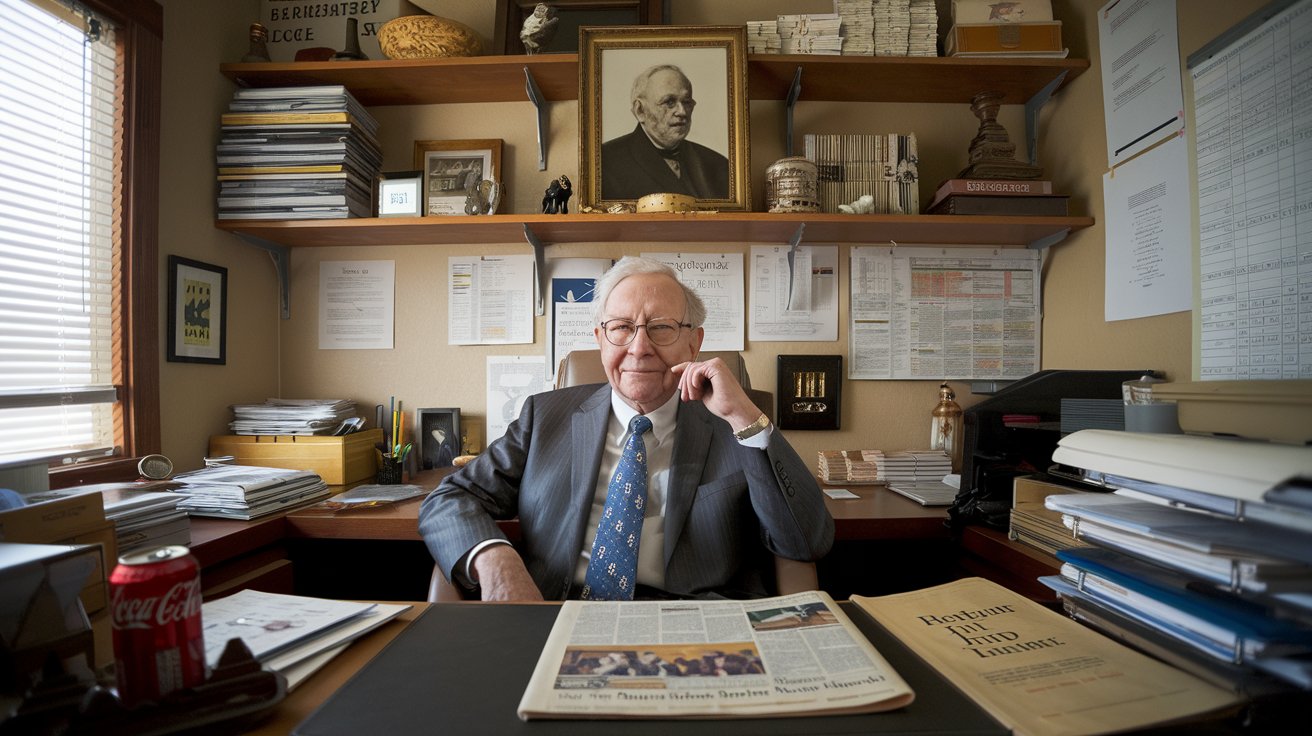When we think of Bill Gates, we tend to picture the tech visionary who co-founded Microsoft, or the philanthropist whose foundation has transformed global health and education. But behind the public persona, there are little-known stories that reveal a deeper, more personal side of Gates—stories that highlight his humanity, quirks, and even some near-miss moments in his incredible journey. Let’s dive into some of these fascinating, unheard stories about Bill Gates that go beyond his professional achievements.
1. The Secret Act of Kindness – Paying a Stranger’s College Tuition
One of the most touching stories about Gates is his habit of helping people without seeking attention or recognition. In the 1990s, while dining at a small café in Seattle, Gates overheard a young woman struggling to figure out how to pay her college tuition. The conversation tugged at him. Quietly and anonymously, Gates decided to cover the entire cost of her education. The woman had no idea who her benefactor was until years later, when she discovered that Bill Gates had been the one to help her finish school. This is not an isolated case; Gates has a history of helping people in need, preferring to keep these random acts of kindness private, far from the public eye.
What this tells us is that for Gates, philanthropy isn’t just about large foundations or billion-dollar donations. It’s also about the personal, direct impact on people’s lives—often in ways that never make the news.
2. The Moment He Almost Walked Away from Microsoft
It’s hard to imagine Microsoft without Bill Gates, but at one point, he almost left the company. During the late 1980s, before Windows became the global standard for personal computers, Gates found himself facing burnout. He was overwhelmed by the demands of running a fast-growing tech company in an industry that was constantly evolving. At that time, Gates was seriously considering stepping down.
In a candid conversation with his mother, Mary Gates, he expressed his doubts about continuing. Mary, who had a tremendous influence on him, reminded him that Microsoft wasn’t just a company—it was an opportunity to change the world. Her words reignited Gates’ passion, and he stayed on, pushing through the tough times. This decision, of course, led to Microsoft’s monumental success with the release of Windows 3.0, a turning point for the company and the future of computing.
Had Gates stepped away, the tech landscape we know today could have been very different. This moment shows the vulnerability of even the most successful entrepreneurs and the importance of family support in driving their persistence.
3. Bill Gates the Harsh Book Critic
Bill Gates is known for being a voracious reader, but what many don’t know is that he’s also a highly critical one. He doesn’t just read books; he analyzes them in great detail. A close friend of Gates, who is also a respected author, once shared a draft of a book with him for feedback. Gates didn’t hold back. His critique was harsh—he pointed out flaws in structure, logic, and flow. While the author was initially taken aback, he eventually appreciated the detailed feedback and revised the manuscript. The final version of the book was much stronger because of Gates’ input.
This incident highlights another side of Gates—his intellectual rigor and the high standards he holds not just for himself but for others as well. He brings the same level of critical thinking to personal relationships and projects as he does to business and philanthropy. His book recommendations, which he shares regularly, are always thoughtful and often reflect his interests in science, economics, and human progress.
4. The Early “Failure” That Taught Gates Ethical Programming
At 14, Bill Gates was already showing his brilliance in programming. He and his close friend Paul Allen created a computer program that helped their school schedule students into classes. The program worked well, but Gates had included a secret piece of code that placed him in classes with the girls he liked. When the school discovered his trick, Gates faced consequences for manipulating the system.
While this may seem like a harmless teenage prank, it was a defining moment for Gates. This early experience taught him about the ethical implications of programming. It highlighted the potential for technology to be misused, even when it’s just for something as innocent as arranging class schedules. This lesson stuck with him and became part of his broader approach to software development and corporate responsibility.
5. His Anonymous Visits to Low-Income Schools
Bill Gates’ passion for education reform is well-known, but what many don’t realize is how personally invested he became in understanding the challenges faced by low-income schools. In the early 2000s, Gates began making secret visits to underfunded schools across the United States. He didn’t want media attention or special treatment—he simply wanted to observe, ask questions, and learn.
During these visits, Gates spoke directly with teachers and students, gaining a firsthand understanding of the systemic challenges in public education, including lack of resources, outdated technology, and overcrowded classrooms. These personal experiences deeply influenced the direction of the Bill & Melinda Gates Foundation’s efforts in education, which have since focused on improving educational outcomes, promoting digital learning, and increasing college readiness for underserved students.
Gates’ commitment to these issues isn’t just philanthropic—it’s informed by real, on-the-ground experiences that many billionaires would never take the time to have.
6. Mistaken for a Janitor at IBM
Here’s a story that’s both hilarious and revealing: In the early days of Microsoft, when Gates was still far from a global celebrity, he was once mistaken for a janitor. During a visit to IBM headquarters, where he was set to present on behalf of Microsoft, Gates was dressed in his typical low-key style—khakis and a sweater. An IBM employee, assuming he was part of the maintenance staff, handed him a bag of trash and asked him to take it out.
Without making a fuss, Gates took the bag, threw it away, and then calmly walked into the meeting where he would deliver a groundbreaking presentation. It wasn’t until later that the IBM executives realized the “janitor” was actually the Bill Gates, founder of the company that would soon revolutionize the computer industry with Microsoft Windows.
This story highlights Gates’ humility and sense of humor. Despite his immense wealth and status, Gates has always maintained an unpretentious, down-to-earth approach to life. It’s a reminder that sometimes, the most successful people are the ones who don’t feel the need to flaunt it.
7. A Fascination with Chickens and Global Poverty
One of the more quirky and unexpected interests Gates has developed over the years is his fascination with chickens. This began after a visit to West Africa, where he saw firsthand how raising chickens could help lift families out of poverty. Chickens provide both food and a source of income, and Gates realized that increasing access to chickens could significantly impact global poverty.
He became so intrigued by this solution that in 2016, he pledged to donate 100,000 chickens to developing countries as part of his foundation’s efforts to address hunger and economic hardship. Gates even joked during a public appearance that “it’s pretty clear to me that chickens are the best investment you can make if you’re trying to help the poor.”
While it might seem quirky, Gates’ fascination with chickens is a perfect example of his ability to think creatively about global challenges. His unique approach often involves looking for simple, scalable solutions that can make a huge impact.
8. The “Lost” Product Vision – The Home Hub
Long before smart home technology became mainstream, Gates had a vision for a connected home. In the early 1980s, he and his team at Microsoft worked on a product called the Home Hub, designed to control lights, appliances, and security systems through a centralized computer. This was decades before Amazon Alexa or Google Home became household names.
However, the technology of the time wasn’t advanced enough to make the product viable, and the project was eventually shelved. Although it never made it to market, this story demonstrates Gates’ foresight. He was thinking about smart homes and the Internet of Things (IoT) long before anyone else.
The Home Hub might have been a failure, but it shows Gates’ knack for long-term thinking and his constant desire to push the boundaries of what technology can do.
These unheard stories give us a richer, more personal understanding of Bill Gates. Behind the success of Microsoft and the massive scale of his philanthropy, there’s a man who has experienced self-doubt, made ethical mistakes, learned from his failures, and maintained a sense of humility and kindness. It’s these stories that show the true character of Gates—one shaped not just by his achievements, but by his desire to make the world a better place, one act of kindness or one chicken at a time.


